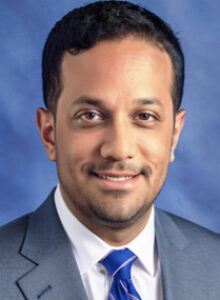Over the past 25 years, I have noticed a movement that has been gaining momentum, aiming to reshape societal views and acceptance of autism and the broader community of individuals with intellectual and developmental disabilities (IDD). If I could name this movement, I would call it Embracing Neurodiversity. It seeks to highlight the strengths and unique perspectives of individuals on the spectrum, advocating for their inclusion and recognition in all aspects of society. By promoting awareness and understanding, we can challenge long-held stereotypes and foster a more inclusive community, allowing individuals with autism and IDD to thrive and contribute meaningfully to society.

Challenging Stereotypes and Fostering Inclusion
For far too long, society has viewed autism through a narrow lens, often focusing on perceived deficits rather than recognizing the diverse abilities and potential of those on the spectrum. I see a shift in this paradigm that emphasizes the strengths and unique viewpoints that individuals with autism bring to the table. This underscores the idea that autism is not a disorder to be “fixed” but rather a different way of experiencing and interacting with the world.
By challenging stereotypes and advocating for acceptance, we can aim to break down the barriers that prevent individuals with autism and neurodiversity from participating fully in society. This includes advocating for inclusive education, employment opportunities, and social activities that recognize and celebrate the abilities of those on the spectrum.
Empowering Individuals/Families by Promoting Awareness and Understanding
Creating a sense of community is crucial for combating the isolation that many individuals with neurodiversity and their families often experience. Providing a supportive network and opportunities for social engagement is vital in helping individuals on the spectrum build confidence and develop meaningful relationships.
One exemplary initiative is Shelanu/Supper Club, a membership community at Westchester Jewish Community Services (WJCS) in Westchester County that is specifically designed for young adults (ages 18-35+) with autism spectrum disorders and their friends. Shelanu, which means “ours” in Hebrew, provides a supportive atmosphere for sharing experiences, participating in recreational activities, skill-building, and developing friendships. With the involvement of WJCS social workers to address mental health issues as needed, the programs ensure that members who come from diverse backgrounds receive the support they need to thrive.
Shelanu and Supper Club are groups that partner with schools, businesses, and community organizations to promote advocacy and provide information to the community and a new perspective on the meaning of individuals with autism/IDD. We do this by fostering empathy and understanding and, in turn, hope to create a ripple effect that will lead to more inclusive practices across all sectors of society.
Creating Opportunities for Meaningful Contribution
It is important to recognize individuals with autism have the right to meaningful employment and opportunities to contribute to society. Our society has been moving towards more inclusive hiring practices and supports initiatives that help individuals on the spectrum find and maintain employment. By focusing on the strengths and abilities of individuals with autism, employers can tap into a pool of talent that is often overlooked.
Teaching self-advocacy helps individuals with autism be more assertive and take an active role in shaping their own futures. These skills can be taught through workshops and mentorship programs and help individuals acquire the tools and confidence.
Final Thoughts
Society’s perception and interaction with individuals on the autism spectrum have undergone a profound transformation. As awareness and visibility have grown, long-standing stereotypes are being challenged, leading to greater inclusion. This shift allows individuals with neurodiversity and their families to thrive and make meaningful contributions to society. This social revolution goes beyond changing attitudes; it aims to build a society where diversity is celebrated and everyone has the chance to reach their full potential. Together, we can ensure that individuals with autism and intellectual and developmental disabilities (IDD) are not only included but are also recognized as essential members of our community’s enriching society for everyone.
Feedback from members of WJCS Shelanu and Supper Club has been incredibly valuable. Members have said, “I’ve made lifelong friends at Shelanu. It’s a place where I feel understood and appreciated,” and “Joining the Supper Club has been one of the best decisions I have ever made in my entire life. The activities are enjoyable, and I always look forward to the next event.”
Nicholas Primavera, MS, MBA, is Program Coordinator at WJCS Shelanu and Supper Club. For more information about WJCS Shelanu/Supper Club and other programs for individuals with intellectual and developmental disabilities, please go to www.wjcs.com.




